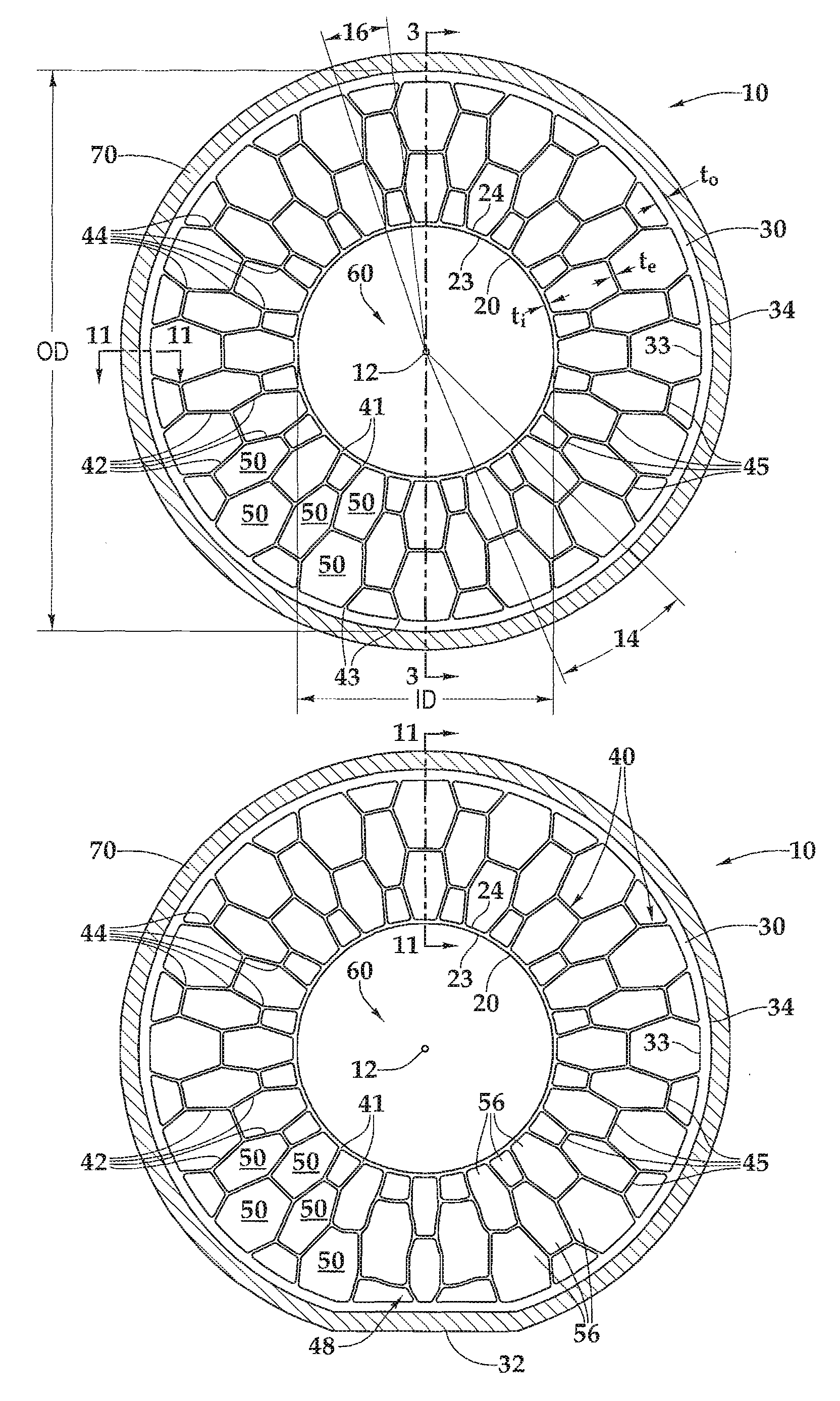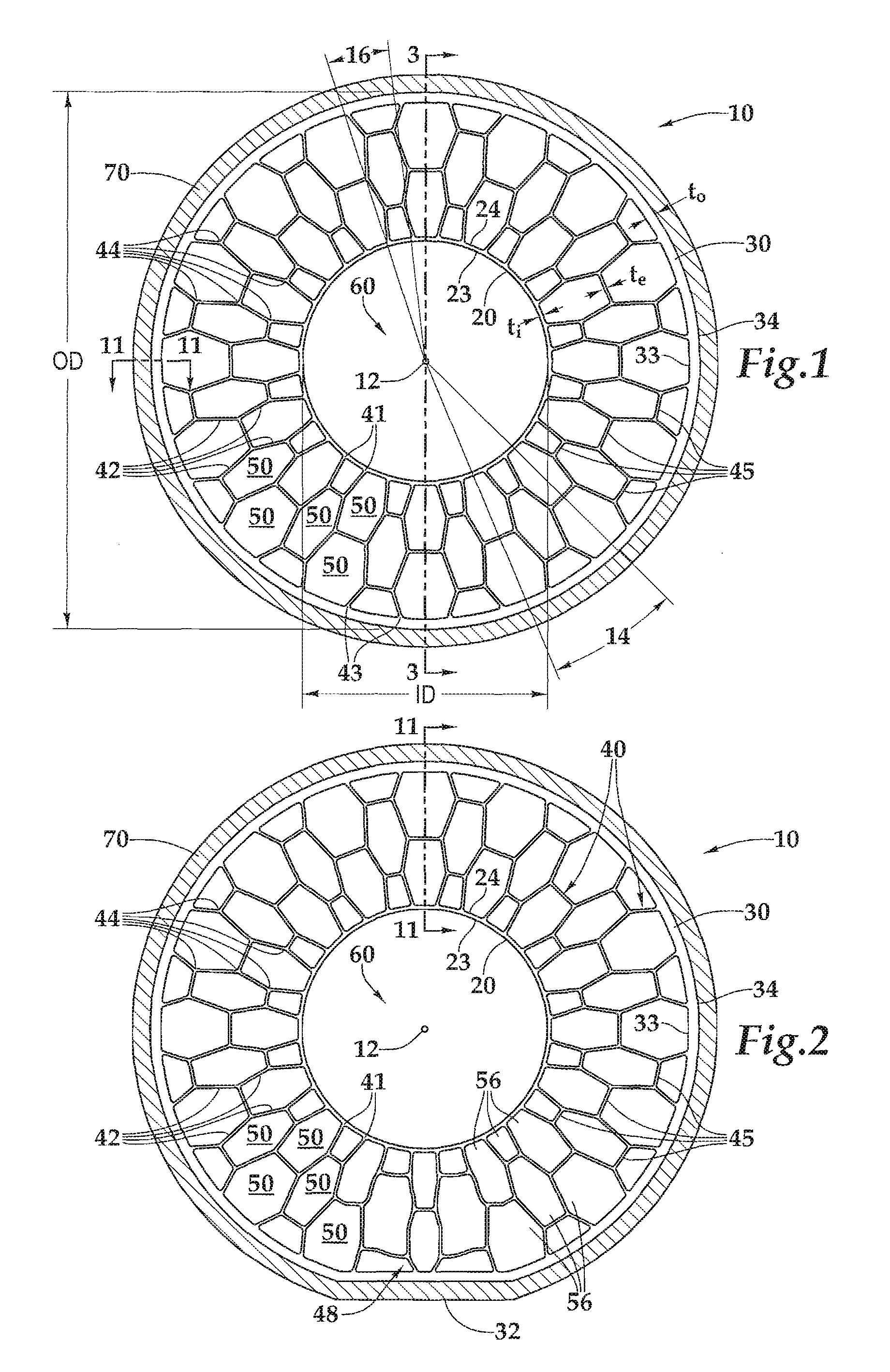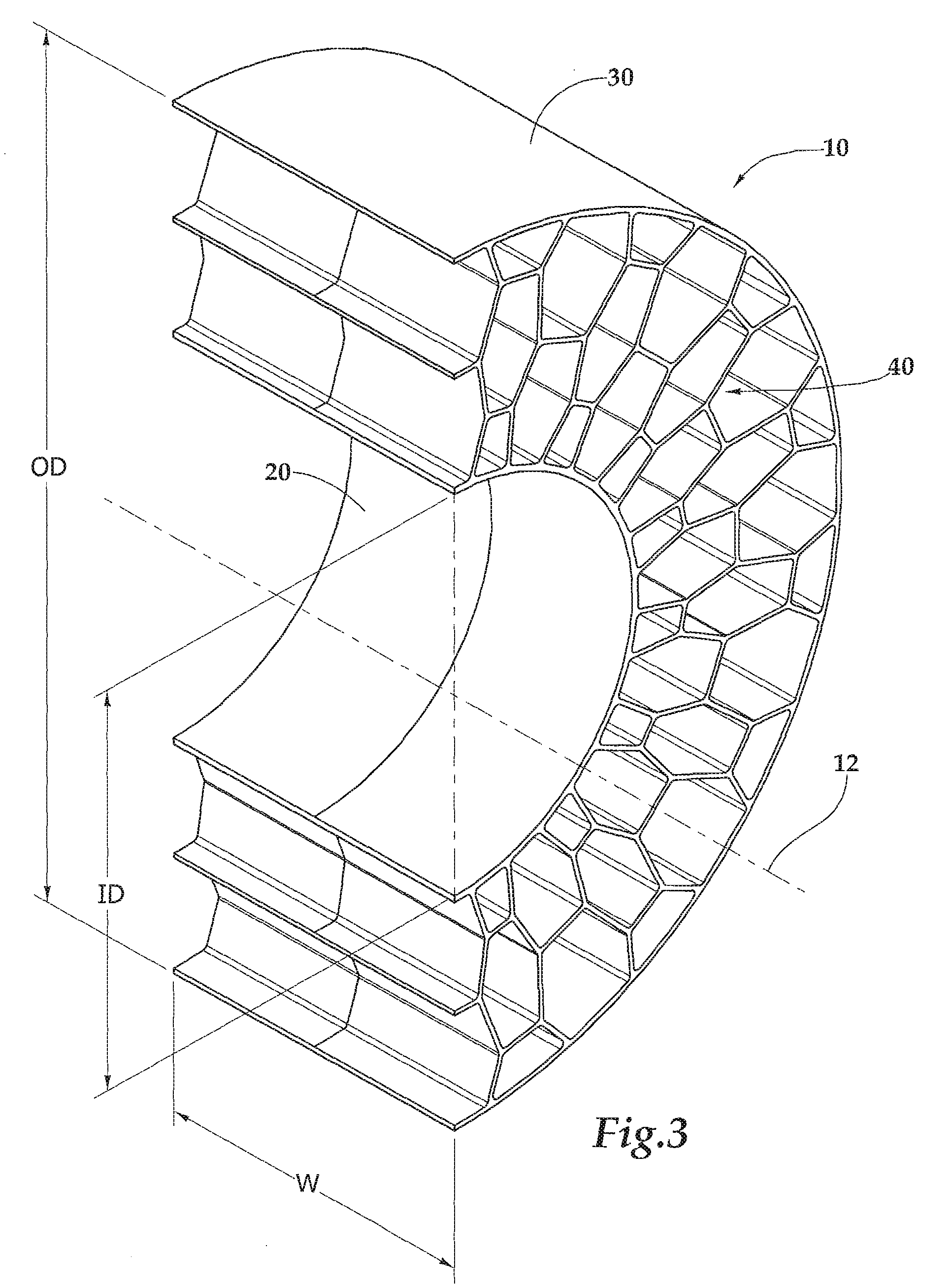Tension-based non-pneumatic tire
a non-pneumatic tire and tire technology, applied in the field of non-pneumatic tires, can solve the problems of reducing affecting the service so as to prolong the life of the tire, reduce the risk of flatness, and improve the service life.
- Summary
- Abstract
- Description
- Claims
- Application Information
AI Technical Summary
Benefits of technology
Problems solved by technology
Method used
Image
Examples
example
[0075]In one embodiment, a non-pneumatic tire 10 possesses the interconnected web 40 of the configuration shown in FIGS. 1 & 2. Tire 10 has a radius of about 9.5 inches and hub 60 has a radius of about 4⅜ inches.
[0076]In general, the force required for buckling of a column is governed by the equation: F_buckling=(KEIπ̂2) / l̂2 where K=a constant whose value depends on how the ends of the column are affixed, E=tensile modulus, I=the area moment of inertia, and l=the unsupported length of the column.
[0077]If each web element 42 of interconnected web 40 is modeled as its own thin column, the radially innermost elements will be fixed at one end and free to move laterally at another end. In this instance, K=¼.
[0078]In this example, interconnected web 40 and generally annular outer ring 30 are made of a similar material having a tensile modulus, E, of about 21 MPa or 3050 psi.
[0079]Tire 10 may be about 8 inches wide and each web element 42 of interconnected web 40 may be between about 0.04 ...
PUM
 Login to View More
Login to View More Abstract
Description
Claims
Application Information
 Login to View More
Login to View More - R&D
- Intellectual Property
- Life Sciences
- Materials
- Tech Scout
- Unparalleled Data Quality
- Higher Quality Content
- 60% Fewer Hallucinations
Browse by: Latest US Patents, China's latest patents, Technical Efficacy Thesaurus, Application Domain, Technology Topic, Popular Technical Reports.
© 2025 PatSnap. All rights reserved.Legal|Privacy policy|Modern Slavery Act Transparency Statement|Sitemap|About US| Contact US: help@patsnap.com



